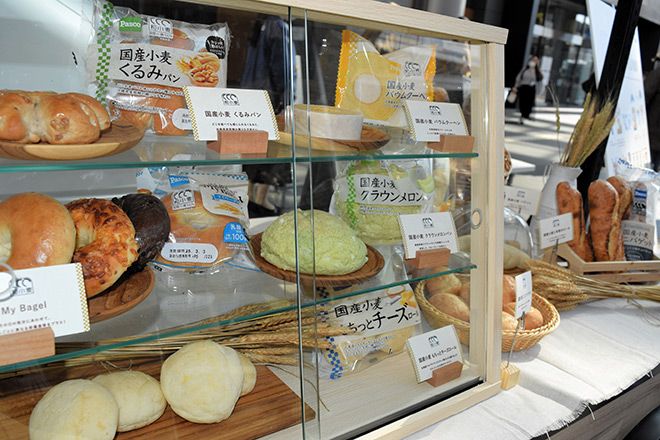Japanese bread makers are increasingly using higher-priced domestically produced wheat to mitigate potential chaos over imports caused by the ever-fluid global situation.
Bread products made from Japanese wheat are generally priced about 10 percent higher than those using imported wheat, depending on the variety.
But Russia’s continuing invasion of Ukraine and possible trade wars sparked by U.S. President Donald Trump’s tariff campaign threaten to disrupt international supply chains and push up wheat prices.
Domestic companies are turning to Japanese wheat, which is said to more easily create a chewy texture, to avoid such turmoil overseas.
In February, Pasco Shikishima Corp. created a brand called “wakomugi” for products that use domestic wheat and redesigned their packages. It also began marketing four new products, including those that contain only Japanese wheat.
Pasco started developing products using domestic wheat in 2008 to help increase Japan’s self-sufficiency rate.
It currently uses Japanese wheat for about 120 items, including meal bread and pastries.
Domestic wheat accounts for 15 percent of all wheat the company uses. Pasco said it plans to increase the rate to 20 percent by 2030.
Fuji Baking Group Co., another major bread producer, started increasing its use of Japanese wheat in autumn 2022.
Last year, the company raised the ratio of domestic wheat used in its popular Honjikomi bread to 10 percent.
The central government said Japan’s self-sufficiency ratio for wheat was 17 percent based on weight in fiscal 2023.
Japanese bread makers said proactively using domestic wheat will lift demand, leading to increasing production of their products.


AloJapan.com